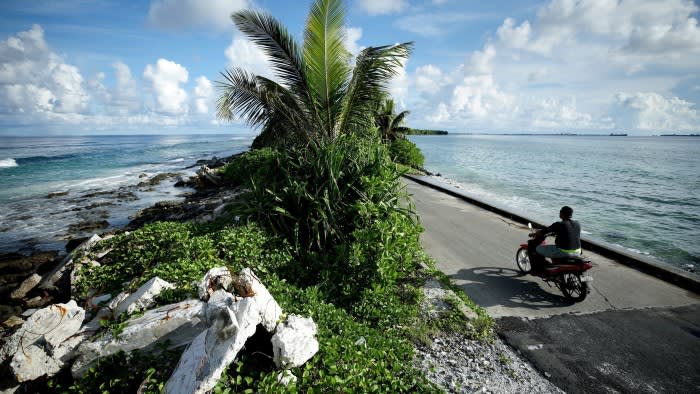This article is an on-site version of our Moral Money newsletter. Premium subscribers can sign up here to get the newsletter delivered three times a week. Standard subscribers can upgrade to Premium here, or explore all FT newsletters.
Visit our Moral Money hub for all the latest ESG news, opinion and analysis from around the FT
Welcome back.
Last week, federal prosecutors in New York charged the former executives of a carbon offsets project developer with commodities and wire fraud, including a former board member of Verra, the standards group. Prosecutors allege that Kenneth Newcombe, as previous chief executive of C-Quest Capital, was one of two leaders of the company who manipulated data on the emissions impact of cooking stove projects in Africa and south-east Asia.
Newcombe, who spent more than a decade on the board of Verra, a leading crediting registry, denied the allegations through a spokesperson. Verra’s techniques for certifying certain carbon credits, including cookstove credits, have faced criticism. The charges come as industry is trying to figure out what a credible market for carbon credits needs as a framework.
For today’s newsletter, Kaori dove into how rising sea levels could threaten not only the communities that live along the shorelines of island states, but also those states’ sovereignty over shrinking territory. (Lee Harris)
The Moral Money Summit Americas is returning to New York on October 15-16. Join us to hear from an exceptional line-up of speakers including Esther Duflo, Gina McCarthy and Rohit Aggarwala. As a subscriber to the Moral Money newsletter, you are entitled to a 30% discount on in-person passes or can claim a complimentary digital seat. Sign up now.
Climate change
UN discusses legal implications of rising sea levels
Sea level rise is now an inevitability. But what happens to countries’ borders and maritime zones after it occurs? As world leaders gathered at the United Nations in New York for the General Assembly, more than 100 nations met to address this question.
“In this century, many of the small island states and low-lying countries will lose considerable territory to rising seas with some, like my country, running the risk of becoming largely uninhabitable,” said Tuvalu’s Prime Minister Feleti Teo. “The existential threat we face is not of our making . . . but it will remake us,” he stressed.
This year’s meeting aimed to lay the groundwork for a future meeting in 2026, in which the General Assembly expects to adopt a declaration on sea level rise. The hope is that the declaration will help clear up any legal grey areas that will emerge as a result of shifting shorelines due to climate change.
During the meeting, small island developing states at the front lines of sea level rise emphasised the need for an international agreement on the permanence of statehood and to “affirm that statehood cannot be challenged under any circumstances of sea level rise”.
The countries also called for maritime zones to remain the same and for “the rights and entitlements that flow from them, shall continue to apply . . . notwithstanding any physical changes connected to climate change-related sea level rise”.
Rising seas are likely to have an impact on countries’ exclusive economic zones, where a nation has exclusive rights to the exploration and exploitation of natural resources in the ocean. These zones are defined as extending 200 nautical miles from a country’s coast under the 1982 United Nations Convention on the Law of the Sea (Unclos).
Currently, international law is ambiguous about the fate of countries when sea levels rise. “There is nothing in international law that contemplates the demise of a country in the context of sea level rise,” Kamal Amakrane, managing director of the Global Centre for Climate Mobility, told me.
As sea level rise exacerbates and legal ambiguity continues, it could lead to disputes in how commercial contracts in EEZs are signed and carried out.
Global mean sea levels have already risen about 20cm since 1880, according to Nasa. The UN’s Intergovernmental Panel on Climate Change projects that by 2050, sea levels will rise by 15 to 30cm above the current level, “almost independently of how quickly global greenhouse gas emissions are reduced”.
In international politics “everything takes a decade. [But with sea level rise] we don’t have a decade,” said Amakrane. “It is time to ascertain that statehood is permanent,” he stressed. (Kaori Yoshida, Nikkei)
Smart read
Former US secretary of state and climate envoy John Kerry has moved into the climate finance business, Attracta Mooney reports, joining a green investment group run by billionaire fund manager Tom Steyer.
Recommended newsletters for you
FT Asset Management — The inside story on the movers and shakers behind a multitrillion-dollar industry. Sign up here
Energy Source — Essential energy news, analysis and insider intelligence. Sign up here


